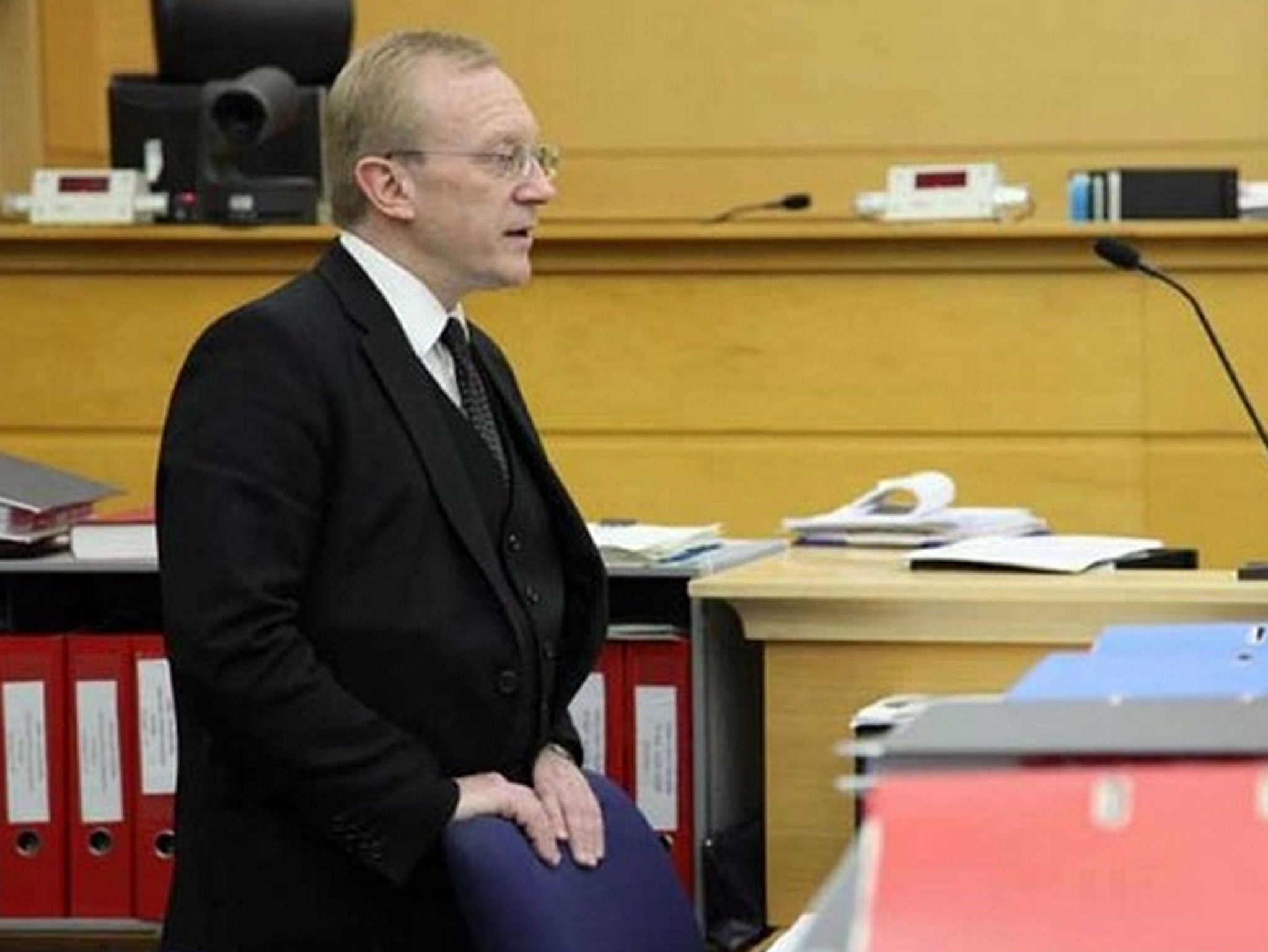TV review: The Murder Trial on Channel 4 was fascinating
The groundbreaking show tested your own ability to suspend prejudice and attend only to evidence

I don't like to think about how many murder trials I've seen on television, this forensic top-biller being a reliable supplier of small-screen drama. But we hadn't previously seen a real British murder trial on our screens before last night, when Channel 4 broadcast Nick Holt's documentary about a Scottish case involving a man accused of murdering his wife. The man in the dock in The Murder Trial had already been found guilty once already, but in 2011 the Supreme Court overturned his conviction as unsafe. This film followed Nat Fraser's retrial, as he attempted to persuade an entirely new jury that he knew nothing about the mysterious disappearance of his wife, Arlene.
The point of broadcasting a real murder trial – besides the understandable prurience that leads to queues outside the public gallery on such occasions – is presumably to stand as some kind of corrective to the fictional versions we usually get. But delivering that corrective is a good deal trickier than it might sound. The case against Fraser took five weeks to hear, with one particularly crucial witness on the stand for an astonishing seven days. Channel 4 only had a two-hour slot though – a blink of an eye on a judicial time scale but actually quite a stretch when it comes to the average viewer's attention span. Somehow, the jury at home – always in danger of being led astray by the TV remote – had to be kept in the room.
Which meant, ironically, that Holt had to turn to the method and the rhetoric of the fictional court case, delivering a kind of compromise between the methodical redundancy of the courtroom and the satisfactions of drama. "This has not been a play or a film," said the Advocate Depute as he began his summing up. He was spot-on in court, but it wasn't quite true of what we saw at home, which included sudden artful cutaways to lonely forest tracks, apropos of nothing but a sense of rising tension. I don't suppose the jury got the thriller soundtrack either, ratcheting the tension up at critical moments, or the artful echo-effect as previously unheard testimony was suddenly revealed during the closing speeches. And they certainly wouldn't have got the out-of-court interviews in which various parties shared their suppositions and hunches.
It was a case a thriller writer might have been proud of, one in which there was no hard evidence for the prosecution at all. No body, no forensic evidence and a solid alibi for the man who was meant to have done it. And, for all the unavoidable dramatisations that compression introduces, it was fascinating, a test of your own ability to suspend prejudice and attend only to evidence.
Personally, I thought Mr Fraser's defence did a pretty solid job, exposing the very tendentious evidence of a senior police detective and throwing a revealing light on the chief prosecution witness (a man who the victim's own daughter was convinced was her real killer). There seemed to be a lot of reasonable doubt around. But then we hadn't heard all the evidence. The jury who had, without the engaging distractions of Holt's grace notes, decided that Mr Fraser was guilty. At which point you were finally shown the police photograph of Arlene with a blood-red eye, the result of an assault he'd committed just a few weeks before her disappearance. In that, at least, we were at one with the real jury (from whom this damning fact had also been withheld). But if you really want to know how a trial works and why the procedure matters, you're just going to have to sit through the whole damn thing.
Piper Alpha: Fire in the Night, an anniversary film about the world's worst offshore oil disaster, was a restrained and effective account of an event that left 167 men dead. There's nothing like an eyewitness just allowed to talk.
Join our commenting forum
Join thought-provoking conversations, follow other Independent readers and see their replies
Comments
Bookmark popover
Removed from bookmarks